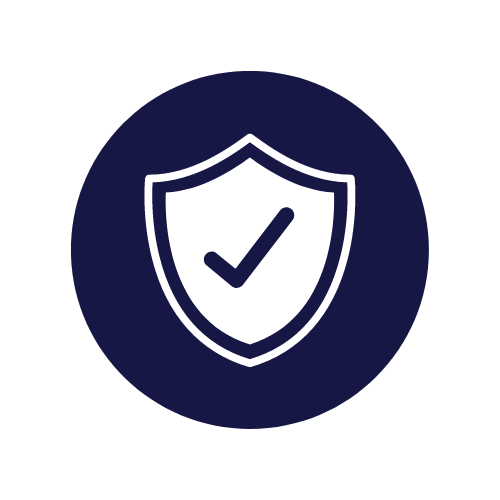What Is Cocaine Psychosis?

By The Recovery Village Columbus
Last Updated: December 20, 2022
What is cocaine psychosis? Cocaine psychosis refers to an array of symptoms that an individual may experience while in a psychotic state, including paranoia, hallucinations, and delusions. There are many risk factors that influence cocaine-induced psychosis and many signs and symptoms of cocaine-induced psychosis that people should be aware of.
Why Cocaine Can Induce Psychosis
What are the psychological effects of cocaine, and why can cocaine cause psychosis? Cocaine can influence psychological processes and induce psychosis because of how it works on a chemical in the brain called dopamine. Dopamine is an important neurotransmitter that plays a diverse role in motivated behaviors, reward, and movement. It is also the neurotransmitter most commonly associated with drugs and addiction. But what are some of the other risk factors for cocaine-induced psychosis?
Risk Factors
- Frequency of Use
- Frequency of use is one of the biggest risk factors for cocaine-induced psychosis. The more that a person uses cocaine, the more they are putting themselves at risk for entering a psychotic state associated with cocaine use. Frequency of cocaine use is also altering the brain’s dopamine system more dramatically, leading to this cocaine-induced psychosis.
- Dosage
- Dosage can also play a modulatory role in cocaine-induced psychosis. The more cocaine that a person uses, the more they are (again) putting themselves at risk for a psychotic break from reality.
- Body Mass Index
- Interestingly, research has also linked body mass index to cocaine-induced psychosis. For example, people addicted to cocaine who were prone to cocaine-induced psychosis had a lower body mass index than cocaine addicts who were resistant to psychosis.
- Age
- Age can also be a risk factor for cocaine-induced psychosis. Specifically, adolescents and teenagers are at increased risk for cocaine addiction because they are more likely to engage in risky behaviors or try to self medicate through the use of cocaine.
- Co-Occurring Disorders
- Co-occurring disorders happen when substance abuse occurs alongside a mental health disorder. When an individual has compounded disorders, it makes them both particularly hard to treat. Cocaine abuse combined with a mental health disorder is particularly dangerous, as cocaine has the potential to trigger psychosis.
Cocaine-Induced Psychosis Symptoms
There are several symptoms associated with cocaine-induced psychosis. What are the main symptoms of psychosis, and how can it be recognized?
Paranoia
Is paranoia a sign of psychosis? In fact, paranoia and suspiciousness are the first signs or symptoms of entering a psychotic state; cocaine users who experience paranoia while intoxicated have a higher risk for the development of psychosis than cocaine users who do not experience paranoia.
Hallucinations
Hallucinations are another symptom that results from an imbalance of dopamine within the brain. So, can cocaine cause hallucinations? Absolutely, it all comes down to how cocaine influences dopamine within the brain. A hallucination is a sensory experience in which a person can see, hear, smell, taste, or feel something that is not there. For example, someone on cocaine might hallucinate that other people are trying to break into their house
Delusions
Delusions are a symptom closely linked to hallucinations, but they differ. A delusion is a false belief that persists in spite of evidence. For example, paranoia about being arrested by the police may turn into delusionary beliefs that the police are actively out to get a person. This is another phenomenon influenced by dopamine in cocaine users.
Co-Occurring Disorders
The presence of a mental health diagnosis alongside substance abuse, also known as co-occurring disorders, is a serious concern. Although many disorders, such as major depressive disorder and anti-social personality disorder, can co-occur alongside cocaine use, one disorder, in particular, has been linked to cocaine-induced psychosis, and that is attention-deficit and hyperactivity disorder (ADHD). Interestingly, dopamine is also a key player in ADHD, further implicating the actions of cocaine on dopamine systems in cocaine-induced psychosis. Finally, the personality trait of neuroticism has also been linked to both cocaine-induced psychosis and several mental health disorders.
Treatment of Cocaine-Related Psychosis
What is the treatment for psychosis, particularly cocaine-related psychosis? Treatments can range from behavioral-based therapies to medication-assisted therapies.
- Therapies
- Behavioral therapies, such as cognitive-behavioral therapy, are sometimes used to treat cocaine-related psychosis. What type of therapy an individual will best benefit from will depend on their specific diagnoses.
- Medication-Assisted Therapies
- Medications such as antipsychotics, antidepressants, or anti-anxiety drugs are sometimes used to reduce psychotic symptoms present in cocaine users.
The type of therapy an individual will benefit most from will differ from person to person, as each person is unique in terms of their specific mental health and substance abuse diagnoses. If you or someone you love is suffering from cocaine-induced psychosis, you are not alone and help is out there. Contact us today at The Recovery Village to learn more about our personalized and confidential services.
Sources
Roncero, Carlos, et al. “Risk factors for cocaine-induced psychos[…]e-dependent patients.” European Psychiatry, 2013. Accessed October 9, 2019.
Roncero, Carlos, et al. “Prevalence and risk factors of psychotic[…]e dependent patients.” Actas espanolas de psiquiatria, 2012. Accessed October 9, 2019.
Roncero, Carlos, et al. “Neuroticism associated with cocaine-indu[…] observational study.” PloS one, 2014. Accessed October 9, 2019.
Hansell, N. K., et al. “Genetic co-morbidity between neuroticism[…]nd young adult twins.” Psychological medicine, 2012. Accessed October 9, 2019.
Morton, W. Alexander. “Cocaine and psychiatric symptoms.” Primary care companion to the Journal of clinical psychiatry. 1999. Accessed October 5, 2019.
Rosse, Richard; Deutsch, Stephen; Chilton, Melissa. “Cocaine addicts prone to cocaine-induced[…] psychosis proneness.” Israel Journal of Psychiatry and Related Sciences, 2005. Accessed October 5, 2019.
Satel, Sally L.; Edell, William S. “Cocaine-induced paranoia and psychosis proneness.” The American journal of psychiatry, 1991. Accessed October 5, 2019.
Tang, Yi-Lang; et al. “Comorbid psychiatric diagnoses and their[…]e-dependent subjects.” American journal on addictions, 2007. Accessed October 5, 2019.

Questions?
Our Recovery Advocates are ready to answer your questions about addiction treatment and help you start your recovery.



